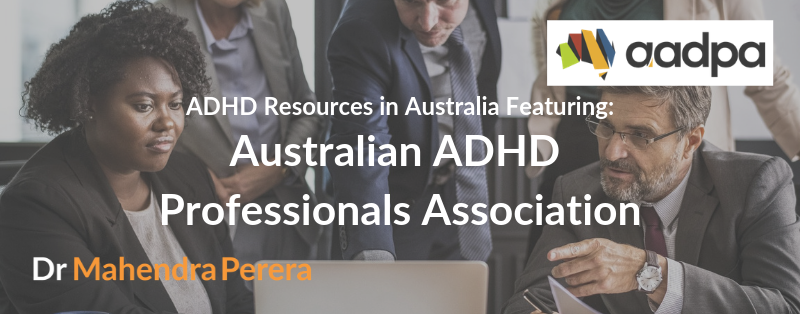In my collection of ADHD Resources in Australia, I have focused primarily on the resources which are available for those who are diagnosed with ADHD, as well as their family members and friends. In this article, I’ll be looking at the Australian ADHD Professionals Association (AADPA) – a resource for ADHD practitioners, psychiatrists, consultants and coaches who treat and support those with ADHD.
If you’ve read the article on “Inside the Mind of an Adult ADHD Specialist”, featuring my interview at PsychScene Hub, you’ll be familiar with some of the complexity that comes with being an ADHD psychiatrist. Quite often, we have to treat concurrent mental illnesses along with ADHD. For this reason, and the fact that new research and treatment methods are evolving each year, it is helpful to join a community of other practitioners.
The Australian ADHD Professionals Association (AADPA) provides a community for inter-disciplinary practitioners of ADHD to share the latest approaches to treatment of ADHD, and supporting the families of those who are diagnosed with ADHD. Their mission is:
To promote evidence-based research, diagnosis, treatment and management of ADHD for the benefit of individuals with ADHD and their families across Australia.
Founded in 2016, the AADPA fulfils its mission through a four pillar approach including: Education & Training; ADHD Advocacy, Policy Development, and ADHD Research. Members span Australia and New Zealand, from a wide range of disciplines, all with the shared dedication of helping those with ADHD.
On the AADPA’s recently relaunched website, they provide a set of webinars as well as information on how you can join the AADPA. They are still in the process of updating the site and intend to create a ‘Members’ section with additional resources in the future.
Quite often ADHD can be an isolating condition, especially for adults with ADHD. For a long time, working as an ADHD practitioner was isolating as well. Groups like the AADPA provide more than resources to their members, they provide a sense of community and the opportunity to connect with related practitioners.
Ultimately, patients and their families benefit by more research-driven approaches to care which build on a shared knowledgebase. By participating in the ADHD community, you are also contributing to the effort to bring greater awareness to the diagnosis and treatment of ADHD. It’s a win-win for practitioners and their patients.
Dr Mahendra Perera is a General Psychiatrist who treats adult patients in Melbourne, Australia. Dr Perera has specific interests in ADHD, Mood Disorders and Addiction. In addition working with his patients, he has also contributed to research across a number of specialties and helped many young doctors make their way in the medical field. Learn more about Dr Perera.
Please note: Dr Perera has no financial arrangement with any of the providers listed on the site. These resources are provided as a courtesy to patients, and are not intended as a recommendation or endorsement.
